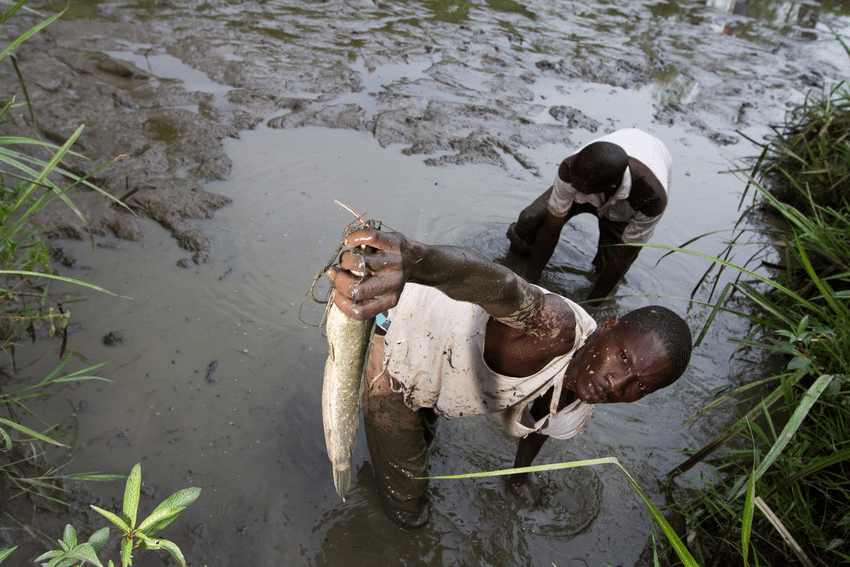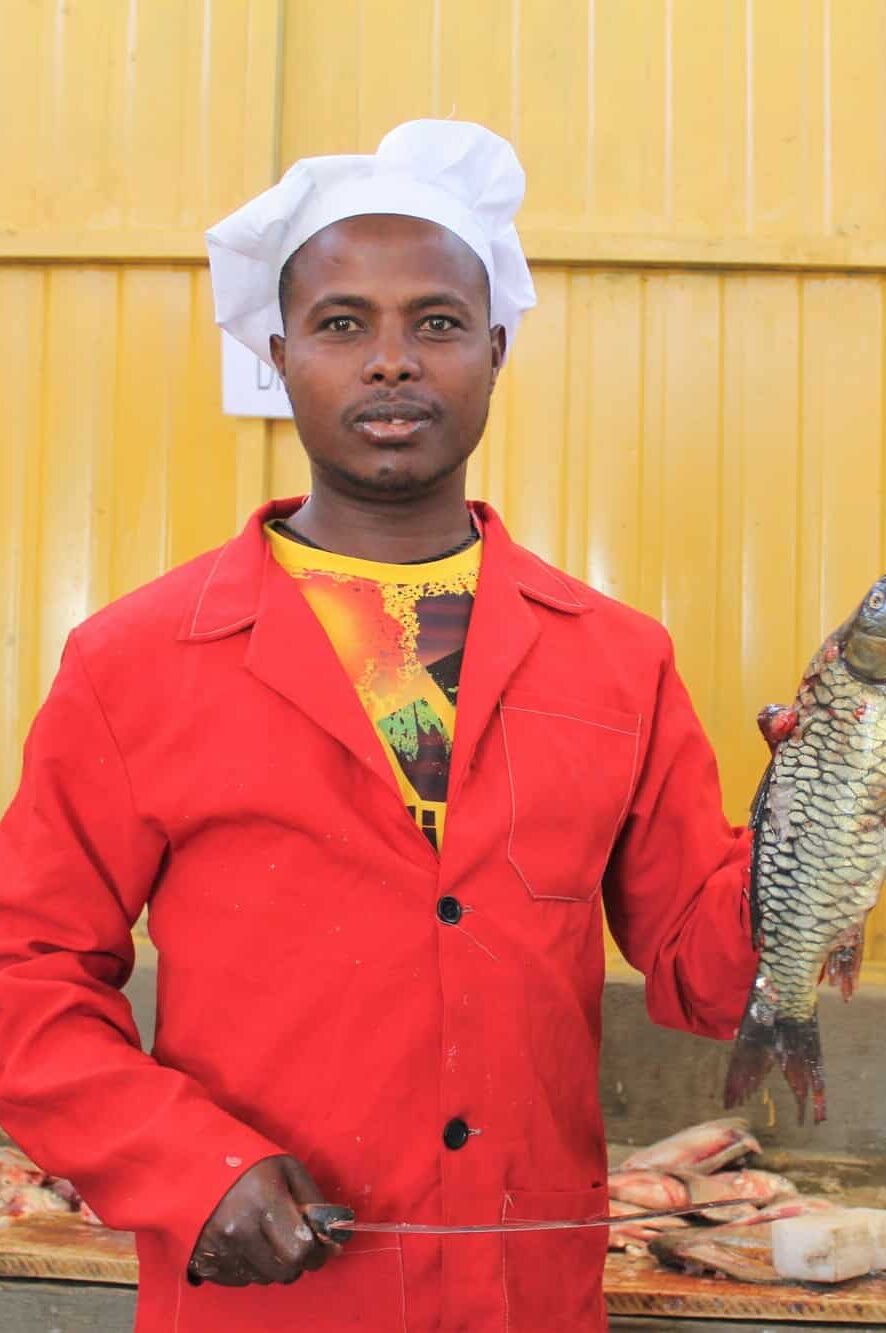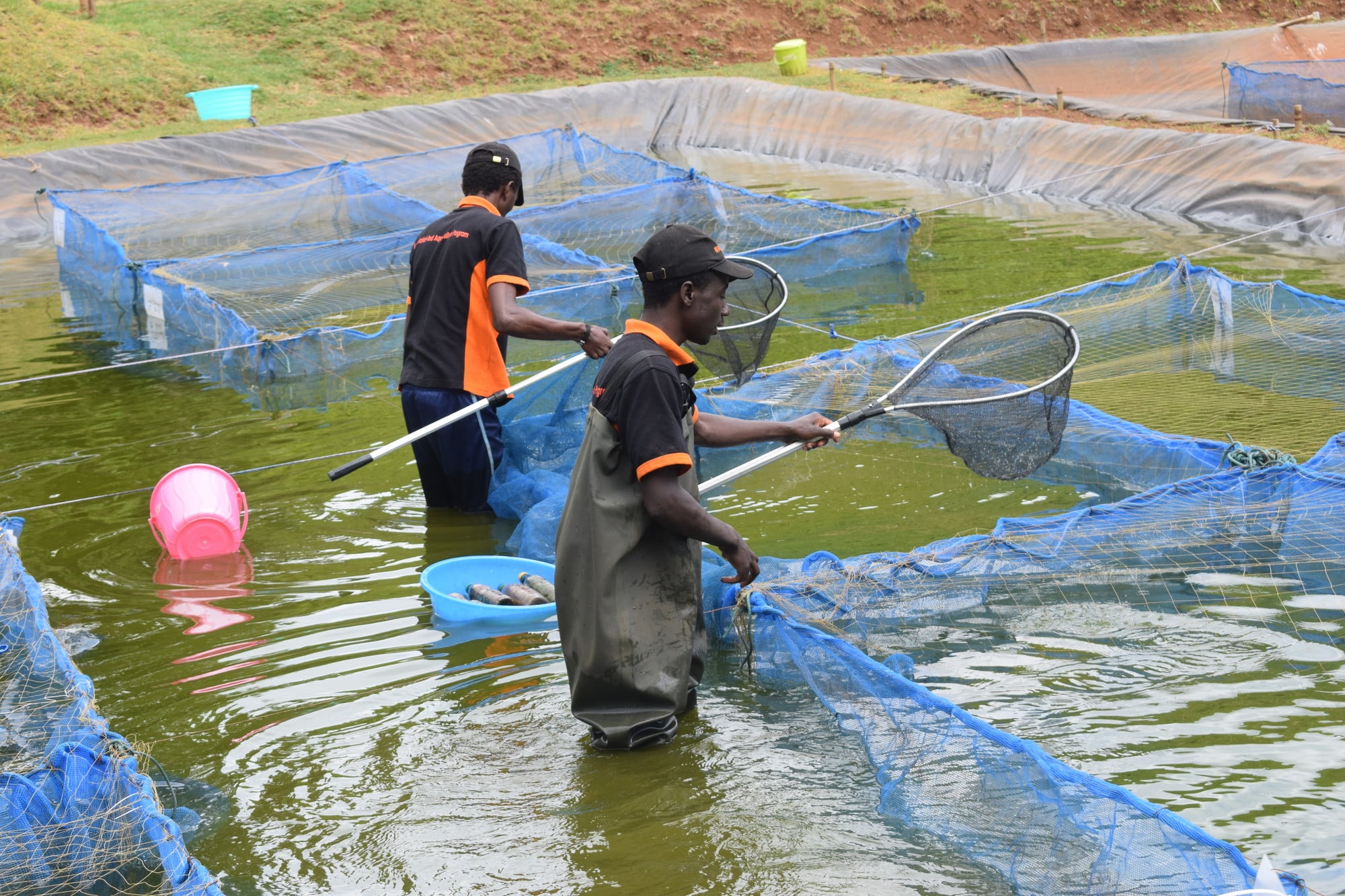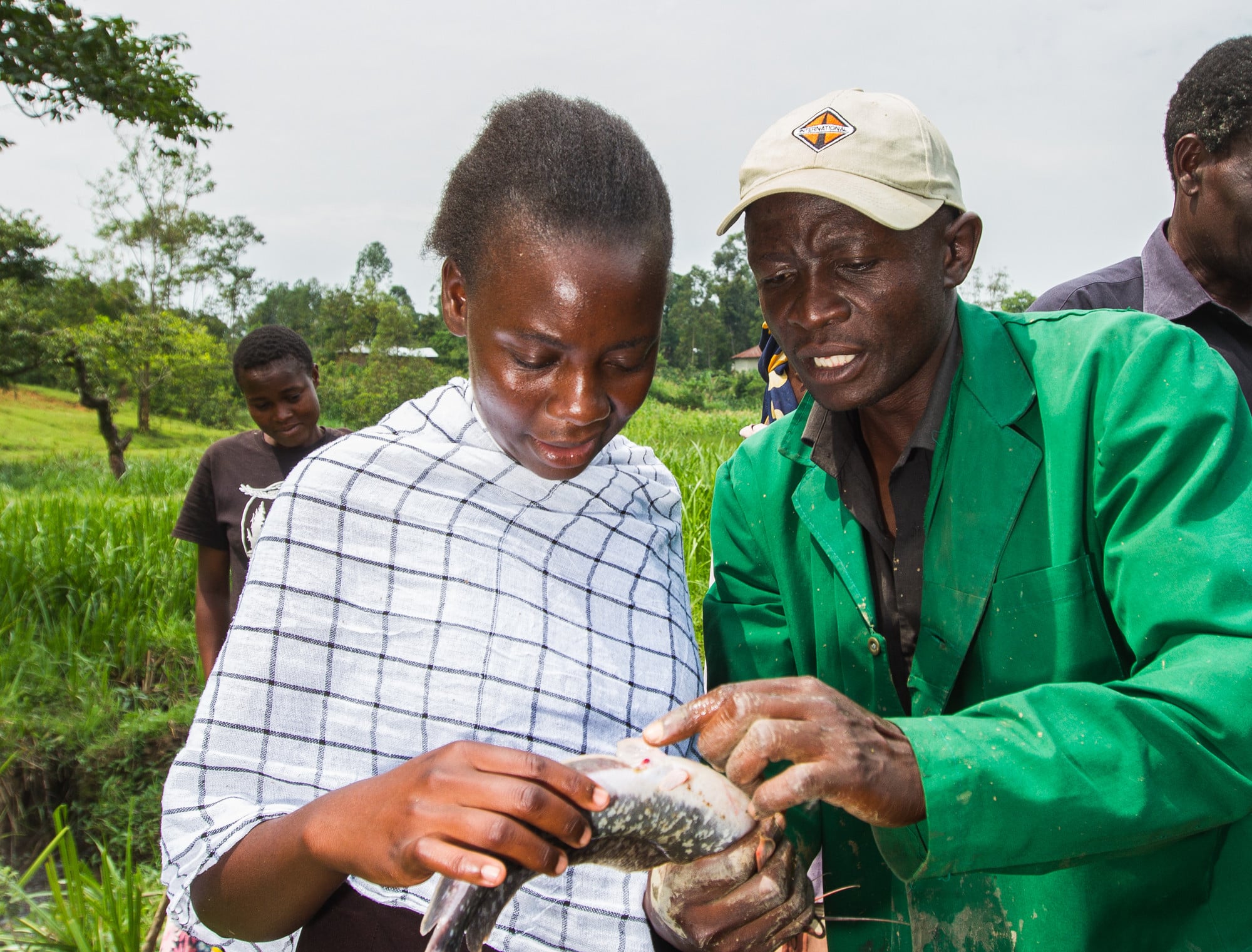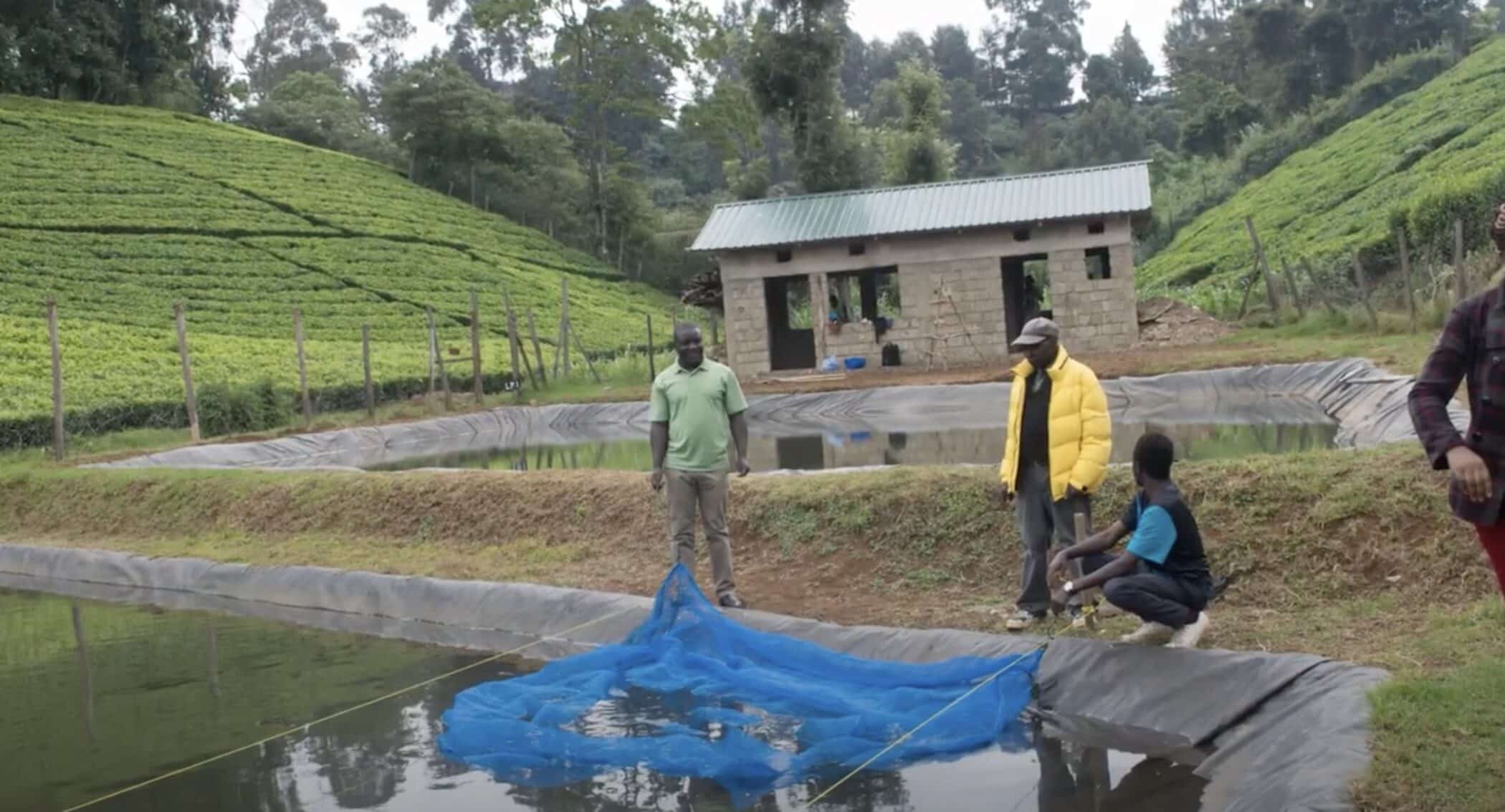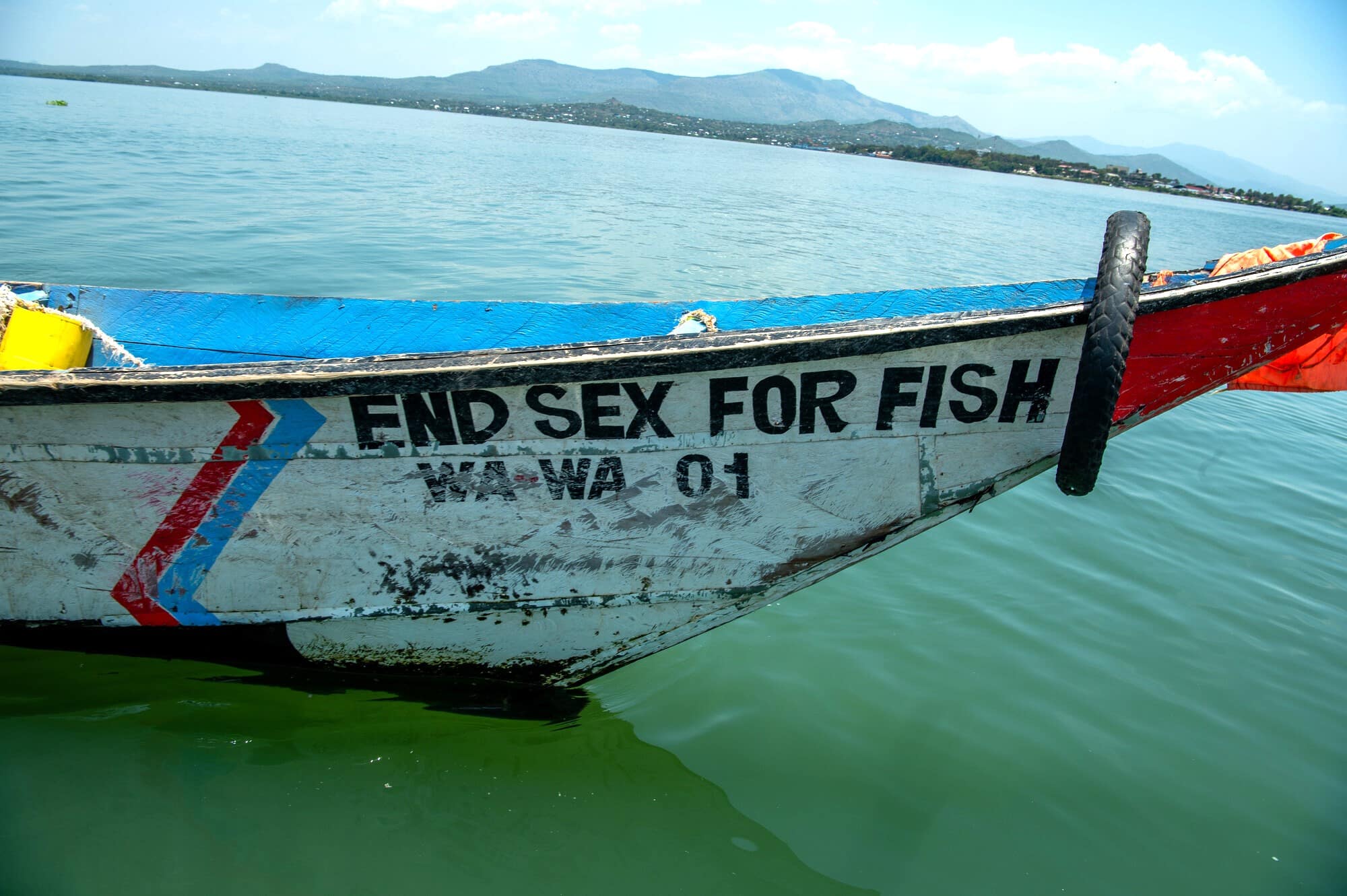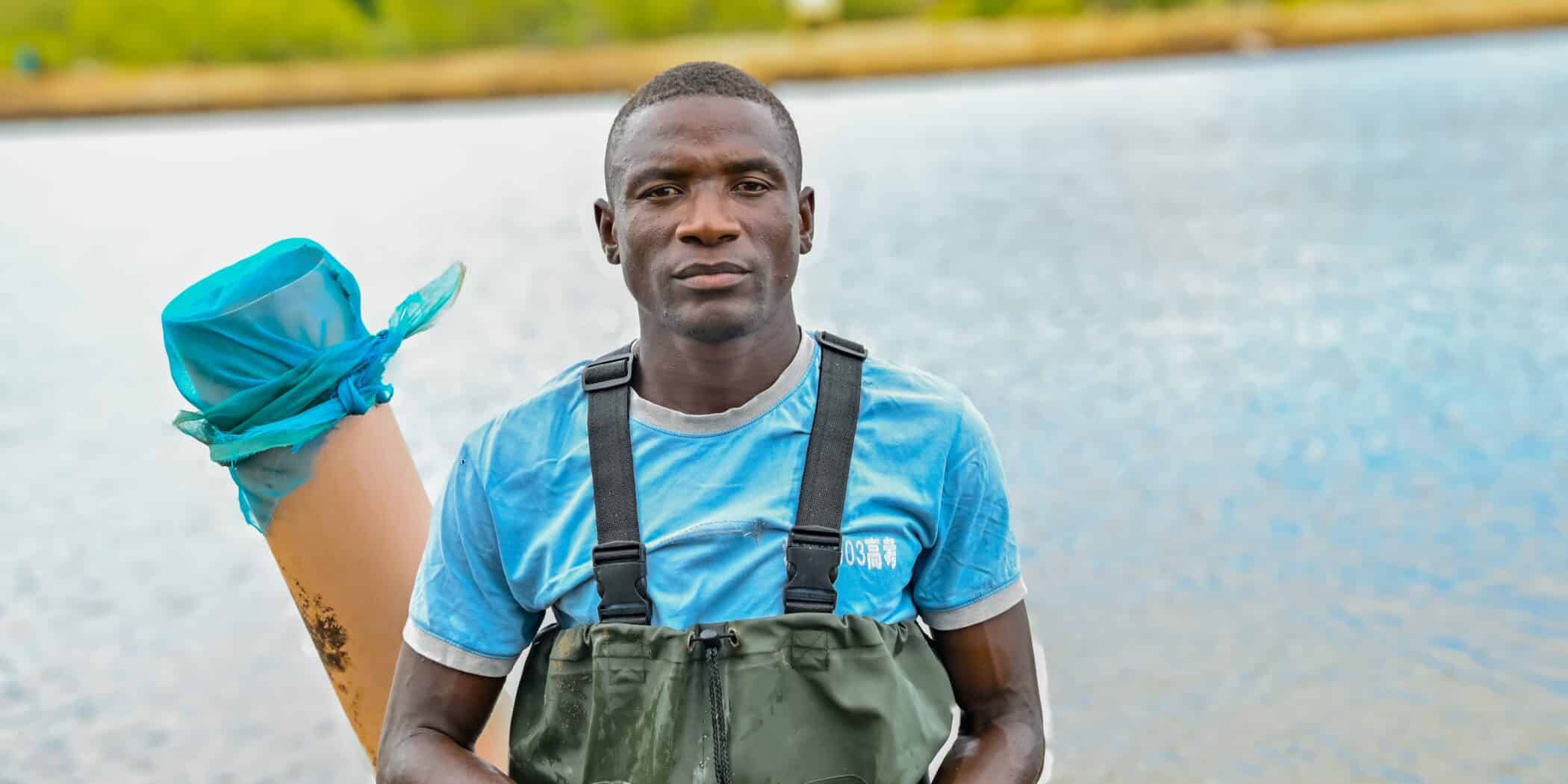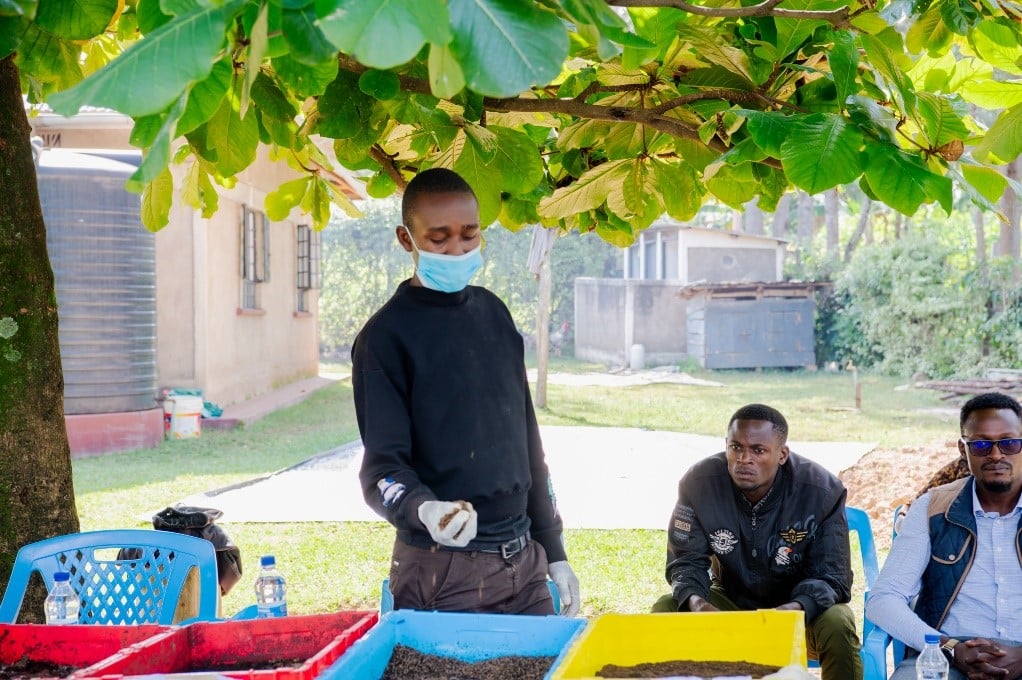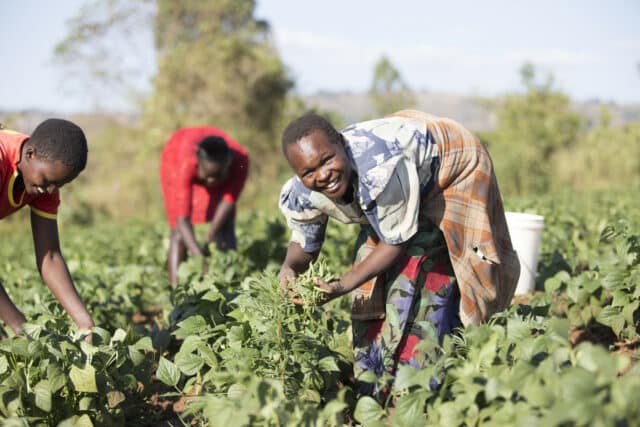Specific expertise
Fish farming
Demand for fish in eastern Africa is increasing rapidly. Farm Africa helps people make a living from sustainable fish farming.
Demand for fish in eastern Africa is increasing rapidly due to population growth and increased awareness about the nutritional benefits of fish. However, markets are not receiving a consistent supply of high-quality fish.
The volumes of wild fish caught are declining due to overfishing and pollution.
Many fish farmers and fishers struggle to get by as they lack technical know-how and operate on a small scale in remote locations, cut off from both buyers and the suppliers of feeds and young fish needed to produce high-quality fish.
Farm Africa is helping create a flourishing fish farming sector that creates employment opportunities, boosts incomes and provides families with an affordable source of protein, while reducing water pollution.
Improving production
Whether they’re fishing from ponds dug on their land, lakes or the sea, Farm Africa helps fish farmers to improve their fish farming practices.
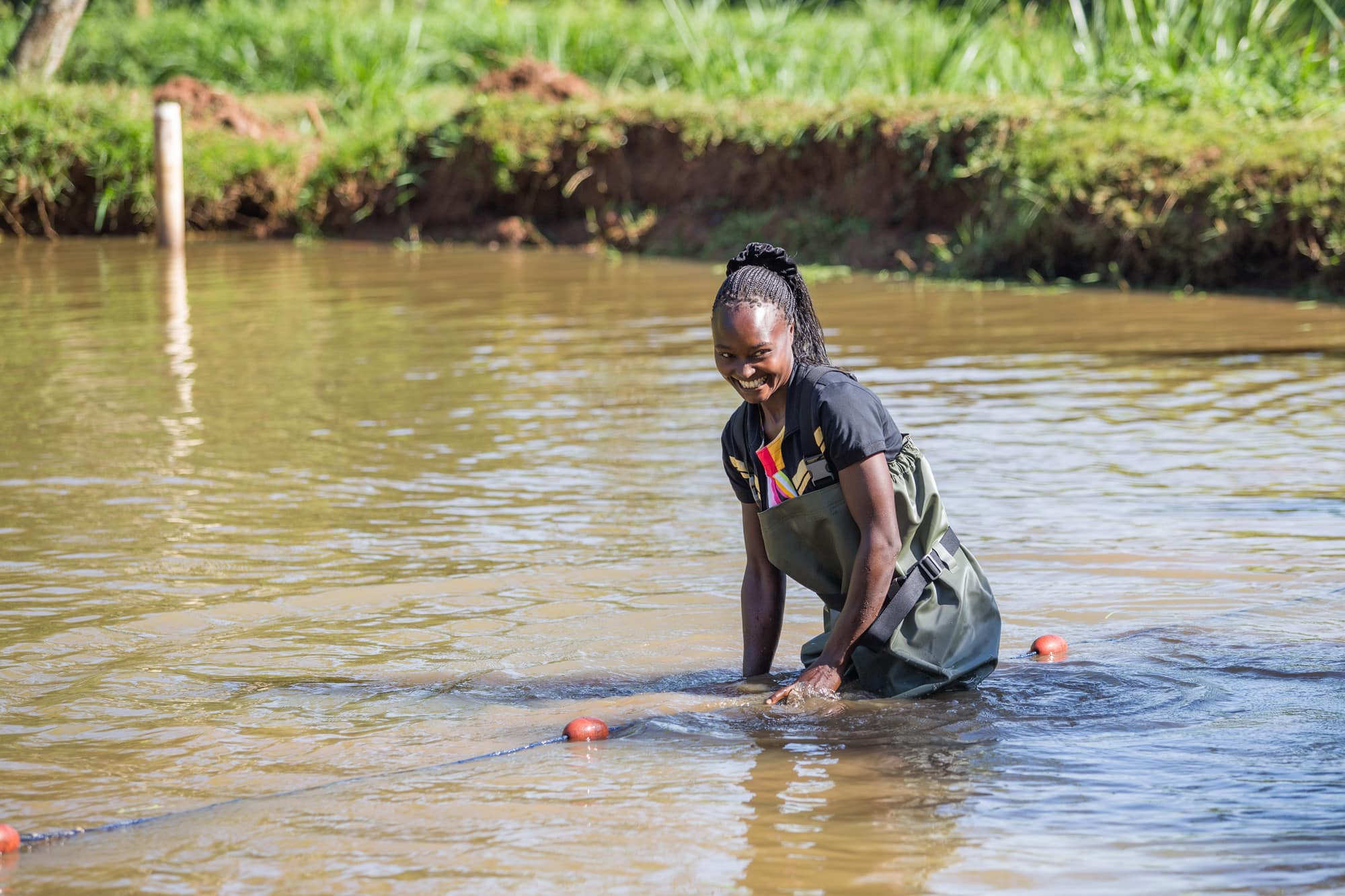
From how to dig and line a fishpond, to the optimal size of young fish to release into fishponds and the best types and quantities of fish feed to use, we share evidence on how farmers can increase their yields and the quality of the fish they produce, while minimising costs of production.
With fish feed accounting for close to two thirds of production costs of farmed fish, optimal use of feeds can make the difference between making a profit or loss for many fish farmers.
A business approach
The success of fish farming depends on farmers’ access to markets and closely monitored expenses.
We help fish farmers keep effective records of costs and build their links to buyers. Forming collectives to sell fish in bulk provides farmers with the leverage to sell at higher prices, while staggering production cycles with other groups can ensure a continuous supply of fish is available for sale.
We also help farmers explore different options for increasing the value of the fish they sell, such as filleting fish, selling fried and smoked fish, and selling products such as fish burgers, nuggets and sausages to the hospitality sector.
Youth employment
There is high youth unemployment in eastern Africa, but fish farming is often overlooked by young people searching for work. Farm Africa works to change perceptions amongst young entrepreneurs of the opportunities offered by the sector.
Job opportunities for young people include roles as diverse as marketing, ice-making, transport, fish feed production and training of fish farmers.
Protecting the environment
We believe the aquaculture sector should strive for sustainable production levels that balance economic, social, and environmental considerations. This includes minimising waste and pollution, minimising the use of antibiotics and chemicals, and ensuring the responsible use of feed and other inputs.
Our training for farmers encompasses the importance of disease prevention, essential with shared water resources, as well as efficient water management. Attention is also paid to water quality and quality of inputs, which can mitigate effects of environmental impacts.
In Kenya we are piloting an environmentally friendly way of producing fish feed that uses the larvae of the Black Soldier Fly to convert low-value organic waste into high-value protein at a relatively low cost.
We are also helping to strengthen beach management units (BMUs) – local organisations that are responsible for sustainably managing a specific stretch of coastline or beach.
Resources
Country
Kenya
Key focus areas
Boost youth employment
Increase food security and nutrition
Increase incomes
Aquaculture for jobs, incomes and food security
The cost of producing fish in Kenya exceeds the wholesale price of imported fish, making Kenyan fish farmers uncompetitive. This policy brief outlines Farm Africa’s recommendations for the support needed to make the Kenyan aquaculture sector thrive and create jobs, increase incomes and bolster national food security.
Download (1.92mb)
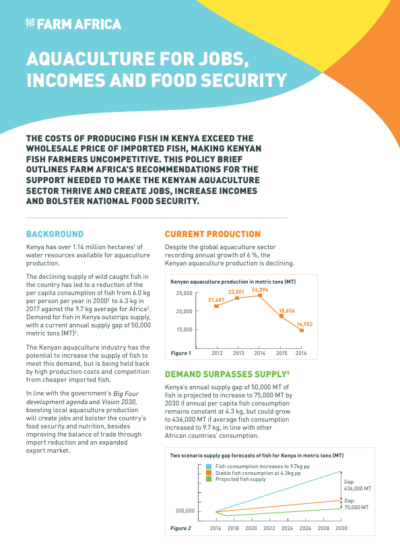
Country
Kenya
Key focus areas
Boost youth employment
Increase food security and nutrition
Increase incomes
Country
Kenya
Key focus areas
Boost youth employment
Connect farmers to markets
Empower women
Farm Africa’s Kenya Market-Led Aquaculture Programme gender impact study
Farm Africa is committed to applying gender responsive approaches to all our programming. The findings of this report will ensure that women, men and young people are given equal opportunities in the aquaculture value chain in Kenya.
Download (4.62mb)
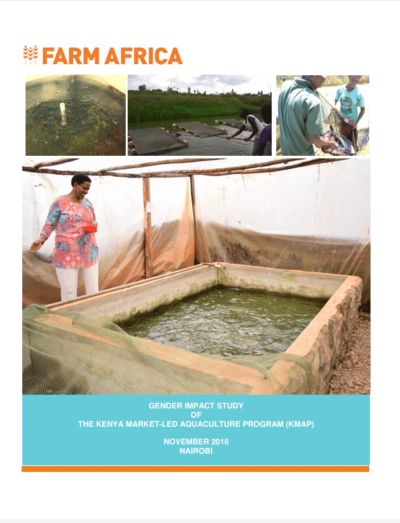
Country
Kenya
Key focus areas
Boost youth employment
Connect farmers to markets
Empower women
Country
Kenya
Key focus areas
Boost productivity
Strengthen food systems
Support businesses
Kenya Market-led Aquaculture Programme (KMAP) Guide to profitable fish farming 2019
This 16-page guide shares lessons from Farm Africa’s Kenya Market-led Aquaculture Programme, funded by the Embassy of the Kingdom of the Netherlands in Kenya, which worked across the fish value chain in 14 counties in Kenya. The project aimed to increase productivity, strengthen market systems and make the policy environment conducive so that farmers can turn their ponds into thriving businesses.
Download (8.02mb)

Country
Kenya
Key focus areas
Boost productivity
Strengthen food systems
Support businesses
You have the power to make a difference
Help make real change to the lives of farming families by donating today.
Where your money’s going
In every £1 we spend:
- 87p on charitable activities
- 8p on support costs
- 5p on fundraising
Did you know?
£18
could help provide farmers with access to the tools and seeds they need to grow fresh, nutritious food
£64
could train farmers in practical techniques like building vertical gardens with recycled materials
£182
could provide ongoing mentorship to farmers, covering all aspects of farming
